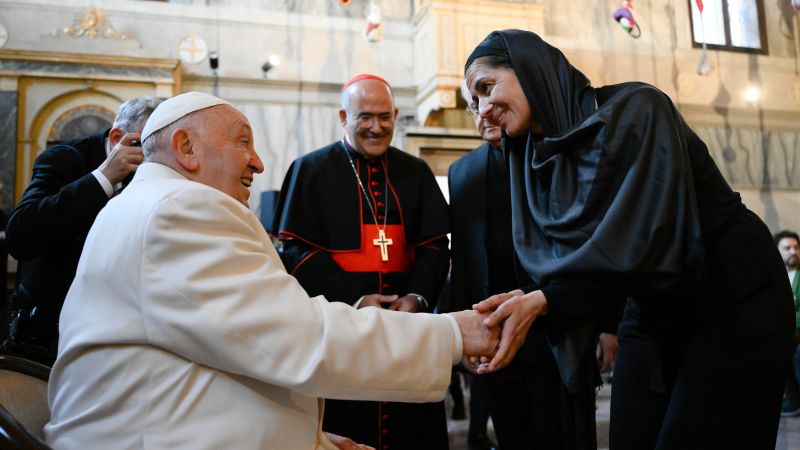TBILISI (Reuters) – Police in the Georgian capital used tear gas, water cannon and stun grenades late on Wednesday as they moved to break up a second straight day of protests against a “foreign agents” law that critics say signals an authoritarian turn.
Hundreds of police gathered in the streets around the parliament building in an attempt to disperse the protesters. And unlike the clashes that took place on Tuesday evening, there were no signs of protesters throwing petrol bombs or stones, although at least one police car was overturned.
Tear gas billowed on Rustaveli Avenue in central Tbilisi, where Parliament is located, forcing at least some of the thousands of protesters to move away.
The Interior Ministry said 77 people were arrested after Tuesday’s protests that began when lawmakers approved a first reading of the law, which requires any organization that receives more than 20% of its funding from abroad to register as “foreign agents” or face heavy fines. .
Latest updates
View 2 more stories
The ruling Georgian Dream party says it is modeled on US legislation dating back to the 1930s. Critics, including President Salome Zurabishvili, say it is reminiscent of a law Russia has used to suppress dissent and could hurt Georgia’s chances of joining the European Union.
Zurabishvili, speaking to CNN, urged the authorities to refrain from the use of force and portrayed Georgia as a victim of aggression from Russia, which she said was determined to maintain its influence in the Caucasus region.
“It is clear that Russia will not let things go easily, but Russia is losing its war in Ukraine,” she said. Both Georgia and Ukraine were once part of the Russian-dominated former Soviet Union.
The European Union last year rejected Tbilisi’s attempts to become a candidate for membership, saying it needed to speed up changes in areas such as the rule of law.
Ruling party crack
The protests resumed on Wednesday afternoon with a march down Rustaveli Avenue to mark International Women’s Day, which is a public holiday.
[1/10] Fireworks explode outside Parliament House, as demonstrators try to breach barrier construction during a rally against a bill on “foreign agents,” which critics say represents an authoritarian shift and could harm Georgia’s bid to join the European Union, in Tbilisi, Georgia March 8, 2023. (Reuters) Irakli Gidnezi
“It is very clear that more and more people are realizing that this is scary and they must fight for their future,” said journalist Mikhail Gvadzabia, 24.
Thousands gathered in front of parliament as evening fell, waving flags of Georgia and the European Union as well as those of Ukraine, chanting “No to Russian law” and blocking traffic.
“We cannot allow our country to become pro-Russian or pro-Russian, or undemocratic,” said software engineer Vakhtang Berekashvili, 33.
Ukrainian President Volodymyr Zelensky thanked the Georgians for waving his country’s flag, saying it showed respect.
“We want to be in the European Union and we will be. We want Georgia to be in the European Union and I am sure it will be,” he said in a video address.
Footage of smaller protests in the Black Sea city of Batumi, Georgia’s second-largest city, has also been posted online.
The bill deepened the rift between Georgian Dream, who has a parliamentary majority, and Zurabishvili, a pro-European who has estranged himself from the party since being elected with party support in 2018.
She has vowed to veto the bill if it reaches her desk, though parliament can override it.
Critics say the Georgian dream is too close to Russia and has taken the country in an even more repressive direction. Georgian society is staunchly anti-Moscow after years of conflict over the status of two Russian-backed separatist regions, which erupted into war in 2008.
Irakli Kobakhidze, head of the Georgian Dream organization, said on Wednesday the law would help root out those who work against the interests of the country and the powerful Georgian Orthodox Church. He criticized the “radical Georgia opposition” for stirring up the protesters.
Additional reporting by David Chikhikveshvili and Ben Taviner in Tbilisi; Written by Jake Cordell and David Leungren; Editing by Mark Trevelyan, Gareth Jones, and Grant McCall
Our standards: Thomson Reuters Trust Principles.

“Beer buff. Devoted pop culture scholar. Coffee ninja. Evil zombie fan. Organizer.”






/cloudfront-us-east-2.images.arcpublishing.com/reuters/CHPEJIIVORPZ7FR4XMB7CLDYRM.jpg)
More Stories
Venice Biennale: The Pope makes a historic visit and declares that “the world needs artists”
Keith Siegel and Omri Miran: Video shows American and Israeli hostages alive in Gaza
The Houthis in Yemen destroy an oil tanker and shoot down an American drone News of the Israeli war on Gaza